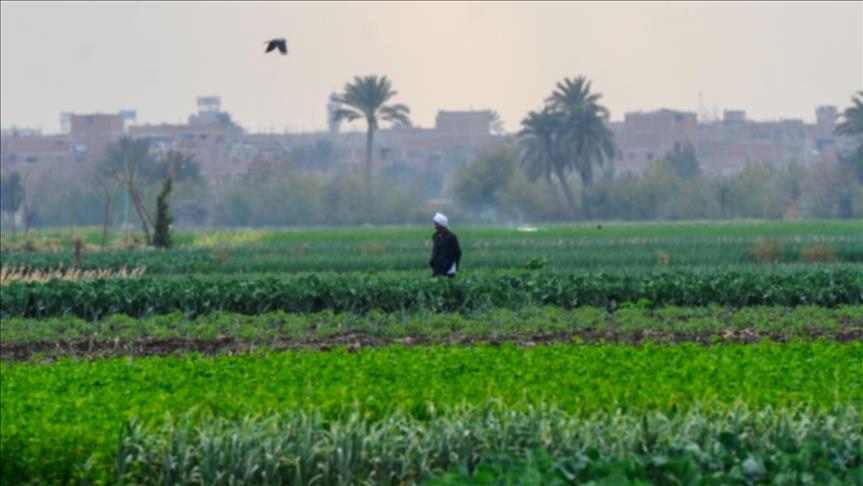
Uganda
By Halima Athumani
KAMPALA, Uganda
Uganda is in the process of modernizing its prison farms amid ongoing concerns over the welfare and possible exploitation of prisoners.
Andrew Kisitu, the commissioner in charge of 27 prison farms, told Anadolu Agency that the government recently provided 7.5 billion Uganda shillings ($2.2 million) worth of agricultural machinery to 16 of the government’s 19 commercial prison farms.
“Our mechanization level is still low, at less than 50 percent,” he said. “We hardly have a farm with two tractors and when you see the available equipment, one tractor cannot do planting, spraying and harrowing.”
However, the increased mechanization on prison farms, which provide produce to jails across the country, is taking place as human rights groups say there are still concerns about the conditions prisoners are working in.
In a 2011, a Human Rights Watch (HRW) report found inmates in Ugandan prisons were subjected to “brutal compulsory labor, frequent violence, miserable overcrowding and disease”.
The report said profits from prisoner labor “often benefit individual prison officers, while prisoners suffer illness from inadequate food, water and basic hygiene.”
Maria Burnett, a senior researcher in the group’s Africa division, told Anadolu Agency this week there were worries over plans to “expand compulsory labor in prisons given the long history of abuses that accompany this practice".
Uganda’s prisons boast 107 square miles of arable land and mostly produce maize, which covers around 30 percent of the food requirements of the country’s 46,000 inmates.
Vegetables, fruit and livestock, as well as forestry and cotton are also cultivated by prison labor.
However, around four-fifths of available land is not used due to a low level of mechanization, according to Kisitu.
The government has prioritized commercial production by providing a further 10 billion shillings ($3 million) to prisons’ annual budget to buy farm equipment.
Interior Minister Rose Akol said the government aimed to reduce the cost of maintaining offenders in custody. “There is a need to transform prisons into a productive service and exploit budget-saving measures,” she said.
Amid the cost-cutting, HRW’s Burnett notes that the UN’s standards on the treatment of prisoners say prison labor must be of a vocational nature and “prisoners should be allowed to choose the type of work they wish to perform”.
She added: “The work must not be driven by government profit motives and no prisoner, whether remand or convict, should be forced to work for private entities, such as private landowners.”
Fit to work
The guidelines also deter the practice of using inmates awaiting trial and stress that they would be medically assessed to see if they are fit to work. In addition, prison laborers should be “treated and remunerated fairly on terms close to what free workers receive”.
“We have not found the Ugandan prison authority to comply with this UN guidance in the past but we hope they will ensure that any expanded opportunities for prisoners to work while incarcerated will meet these minimum standards,” Burnett said.
Despite the advances in modernization, Frank Mbaine, a spokesman for Uganda Prisons, said manual labor would still play a major part on the farms. “Tractors cannot be used to grade-in ‘islands’ and weed so we have to use prisoners to weed, grade and apply fertilizers.”
According to Kisitu, skilled workers are paid up to 500 shillings (15 cents) a day while unskilled laborers get 100 shillings (3 cents). The Mywage.org, which is linked to the Federation of Uganda Employers and the National Organization of Trade Unions, says a subsistence farmer in Uganda earns around 28,000 shillings ($8) a day.
However, due to the absence of a legal framework to make payments to inmates, the wages are not paid.
Uganda, which has the second largest prison population in east Africa after Kenya, has employed prisoners on farms since 1964 as a way of rehabilitating prisoners. Mbaine said this was turned into a commercial activity in 2000, when prisons began selling produce to offset running costs in the face of restricted budgets.
Despite the concerns of HRW, former prisoner Morris Kizito Mukasa, who is now the executive director of Mission after Custody, an NGO supporting prisoners, said the work helped rehabilitate many offenders.
“Some prisoners are so lazy upon being arrested, so this is important for them to be kept busy and give them skills to survive after being released,” he told Anadolu Agency.
Meanwhile, Kizito claimed many former inmates became farmers through the skills gained in prisons. “It’s good for them to exercise their brain and physical body and on release some easily get employed within the communities,” he said.
However, he criticized the government for not informing inmates about their level of contribution to the economy and development of the country.
“The government has the mandate to not only inform them of their contribution to the economy but also facilitate prison staff to educate them on their rights in this regard,” he said.
Anadolu Agency website contains only a portion of the news stories offered to subscribers in the AA News Broadcasting System (HAS), and in summarized form. Please contact us for subscription options.

